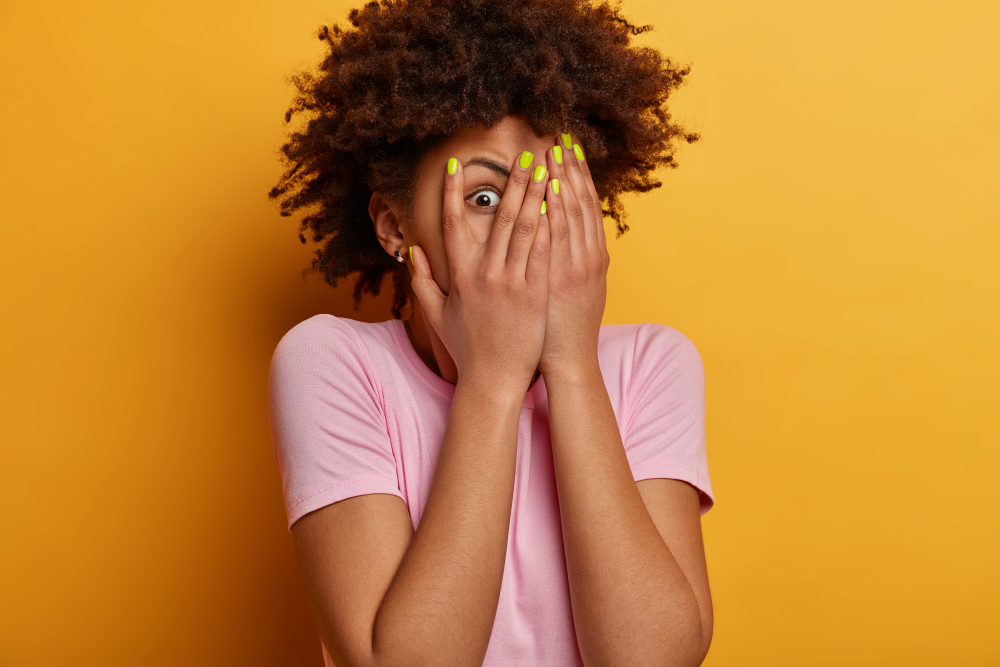
Are those who talk about the “good old days” before social media correct? Yes. In many ways, they are . According to Onlinetherapy.com, 58% of Americans say social media negatively affects their mental health and among those affected, 64% experience anxiety from social media use. Even with this considered, many find it difficult to fully detach. For those with a negative experience, it’s worth considering a social media break or a digital detox.
What Is A Social Media Break?
A social media break is a set period of time where you don’t use ANY social media. The typical ranges are anywhere from 1 day to 1 month.
This break won’t solve your problems permanently, but it can give you a reset, of sorts and time away from all of the negative mental health stressors social media can trigger.
Signs You Definitely Need A Social Media Break
While social media can trigger or worsen anxiety and depression, the signs that you need a break can be a little more subtle.
- It generally makes you feel bad in some way.
- You’re spending vast amounts of time on social media.
- Scrolling is the first thing you do when you wake up, even before getting out of bed.
- You’re scrolling during social activities or scrolling without even realizing it.
- You’re comparing yourself to others constantly; content, lifestyle, finances etc
- Feeling disappointed about a lack of likes and comments on your social media posts.
- You feel an inability to partake in activities without posting about them first.
- You’re getting into arguments on social media.
- You feel annoyance or frustration with people’s posts, comments, or trending topics on social media
- Trouble sleeping while thinking about social media or a reflexive urge to grab for your phone when you can’t sleep.
- You freak out if you can’t check your timeline. (We all remember the Facebook and Instagram outage from 2022)
The Benefits of a Social Media Break
1. Better Sleep

Fear of missing out or FOMO can keep us scrolling during hours we should be sleeping or ramping down for the night. While scrolling, the blue light from digital screens, and the general stress that social media causes can hurt our ability to fall asleep at night.
As a result, taking a social media break or finding ways to limit social media use can lead to longer, better-quality sleep.
2. Less Stress and a Better Mood
Comparing yourself to others, worrying about the engagement on your latest post, or maybe not having a message answered are all ways that social media can add more stress to our lives. Left unchecked, excessive social media use can even lead to anxiety or depression. A long enough break can teach us to let go of these things and remind us how inconsequential they are.
Stress may also manifest from a lack of productivity or neglecting responsibilities. A social media break can help you to gain control over your time. Gradually, you should also feel a sense of relief and a decrease in your stress levels.
3. Enjoy Activities More

We’ve all seen it, your friend sharing grainy footage from every concert they go to, or maybe it’s you meticulously ensuring you get the perfect picture of every meal to post before taking your first bite. Without knowing it, many people are prioritizing showing people what they’re doing on social media over what they’re doing itself.
Can we really enjoy these activities when we’re more engaged in getting likes and comments more than just taking in the experience? Likely not. Whether it’s a family dinner, concert, or just reading a book, you’ll probably find that you enjoy things a little more without the distraction of social media.
4. Better Physical Health
The addictive nature of social media means that people are tempted to spend hours just scrolling through posts most likely while sitting or lying down. The danger of excessive sitting has been discussed at length. In short, a lot of sitting can lead to risks for obesity, diabetes, cardiovascular disease, deep-vein thrombosis, and metabolic syndrome.
Although it’s not a guarantee, (we totally understand gaming and tv still exist) without the stranglehold and distraction of social media, you’re more likely to get a few steps in and sleep better, both of which are vital to improving your physical health.
5. Improve Your REAL Relationships
Social media gives us the illusion that we’re staying in touch with friends and family with just the odd comment here and there. During your social media break, you’ll most likely find that you’re learning new things and deepening the relationships you have with friends and family.
To begin with, additional interactions with those closest to you will strengthen those relationships. Additionally, you can be more present during those interactions without the constant urge to look down at your phone. This is especially important since relationships are one of the most important factors for mental health and quality of life.
6. Lowered FOMO

Is your favorite band coming to town? Are your friends planning a trip? Did someone just make a big announcement? Using social media stresses you out thinking any of these things could happen at any second and that we need to stay on top of our timeline to make sure we don’t miss something important.
Once you quit social media, you’ll most likely find out that nothing you learn about ONLY via social media matters very much. Your closest friends and family will reach out and talk to you about things that are truly important.
7. Better Self-Worth
Thin bodies, amazing food, successful relationships, new houses; It’s all we see and MUST be normal right? Of course, everyone wants to share the highlights of their lives. When we see these things, even when we consciously tell ourselves that this isn’t the whole picture, there’s a tendency to compare our whole lives to the carefully curated highlight reels people present to us.
The time that you take away from social media can let you reset and realize that you feel better about yourself without the constant comparison. If there’s an internal dissatisfaction, it can be a time to reevaluate, set goals and strategize on how to reach them.
8. Increased Productivity
As of 2022, the average person spends 147 minutes per day browsing social media. That’s over two hours! TikTok by itself takes up to 25 hours a month of its users’ time. Browsing social media is a time-intensive activity with every app engineered for the specific purpose of taking more of your time.
During a social media break, you can get more done and get back more hours of your day. According to Learn Safe, teens and adults spend anywhere from two to nine hours per day on social media. Imagine what you could do with that time!
Additionally, social media acts as a disruptor when we’re working or studying. Without it, your flow state won’t be interrupted and you can get more done in less time.
How to Take a Social Media Break
1. Decide How Long the Break Will Be
1 day, 1 week, 1 month. What’s the right length of time for your social media break? This will probably be a balance of the severity of your usage vs what is feasible. It is important that you set a timeline for your social media break so that you can have a goal to commit to and work towards.
2. Block the Websites on your Desktop/Laptop
For some, simply logging out may be enough. However, the addictive nature of social media means that others will benefit from blocking these websites from their desktops completely.
There have been ways to block websites for about as long as we’ve had web browsers but there are new apps with more custom features to help you eliminate or manage your social media usage. Used by Harvard, Google, and Apple, the Freedom App syncs across desktop, and mobile devices to block your access to apps, websites, or the internet entirely when needed. It’s great for a social media break or for limiting usage after since you can schedule specific times when websites and apps are blocked rather than blocking them entirely.
3. Delete Social Media Apps from Your Devices

The desire to go on a social media break comes easy but actually fighting the compulsion to use social media is difficult. To help with this, delete the apps you don’t want to use from your devices. Try to make it as difficult as possible to get onto social media.
4. Have a Friend or Family Member Change Your Passwords
If you think deleting the apps from your phone and blocking the websites from your desktop isn’t enough, a further step to keep you from logging in is to give your passwords to a friend you trust and have them change the passwords.
This approach can be abused in a number of ways so exercise caution and make sure the person you hand passwords over to can and should be trusted. They should also be a person you can trust to say “no” when it matters and not give in if you come begging for your passwords.
5. Find New Ways to Spend Your Time
Train yourself to think differently. When you’re bored, sometimes, sitting with it and having some self-reflection can be healthy rather than reaching for a constant distraction from your smartphone.
Another recommendation is to find new hobbies or things to learn. To provide a bit of direction, start by thinking about what you get from social media. Is it a place to vent? Journaling might provide you with another outlet. Do you go to admire other people’s work/content? Try taking up photography, painting, or another outlet to engage your own creativity. Do you use it to keep in touch? That’ll take us to our next point.
6. Socialize For Real
It can be easy to grow distant from friends and family who we think we’re keeping up with because we comment on their posts occasionally. During your social media break, you may realize that you haven’t spent as much time with friends and family as you thought.
Making a more meaningful effort can strengthen your relationships. Additionally, real socialization means that you’ll probably be kept in the loop about important events and invited to activities eliminating the FOMO that drives you to reach for your phone.
Bottom Line
Social media is engineered to make every utterance or picture someone shares feel like an urgent matter that needs to be tended to immediately and then to keep you scrolling for hours. It’s been quite successful towards this goal. The effects this has on people are mostly negative. Taking a break can increase your self-esteem, perhaps your physical health and overall quality of life.




Validate your login
Sign In
Create New Account